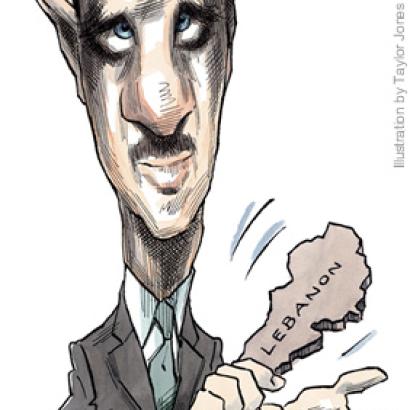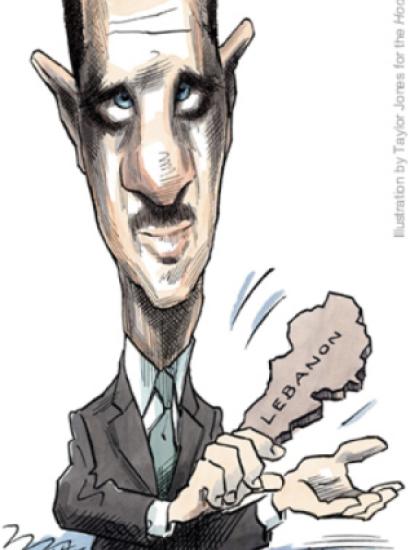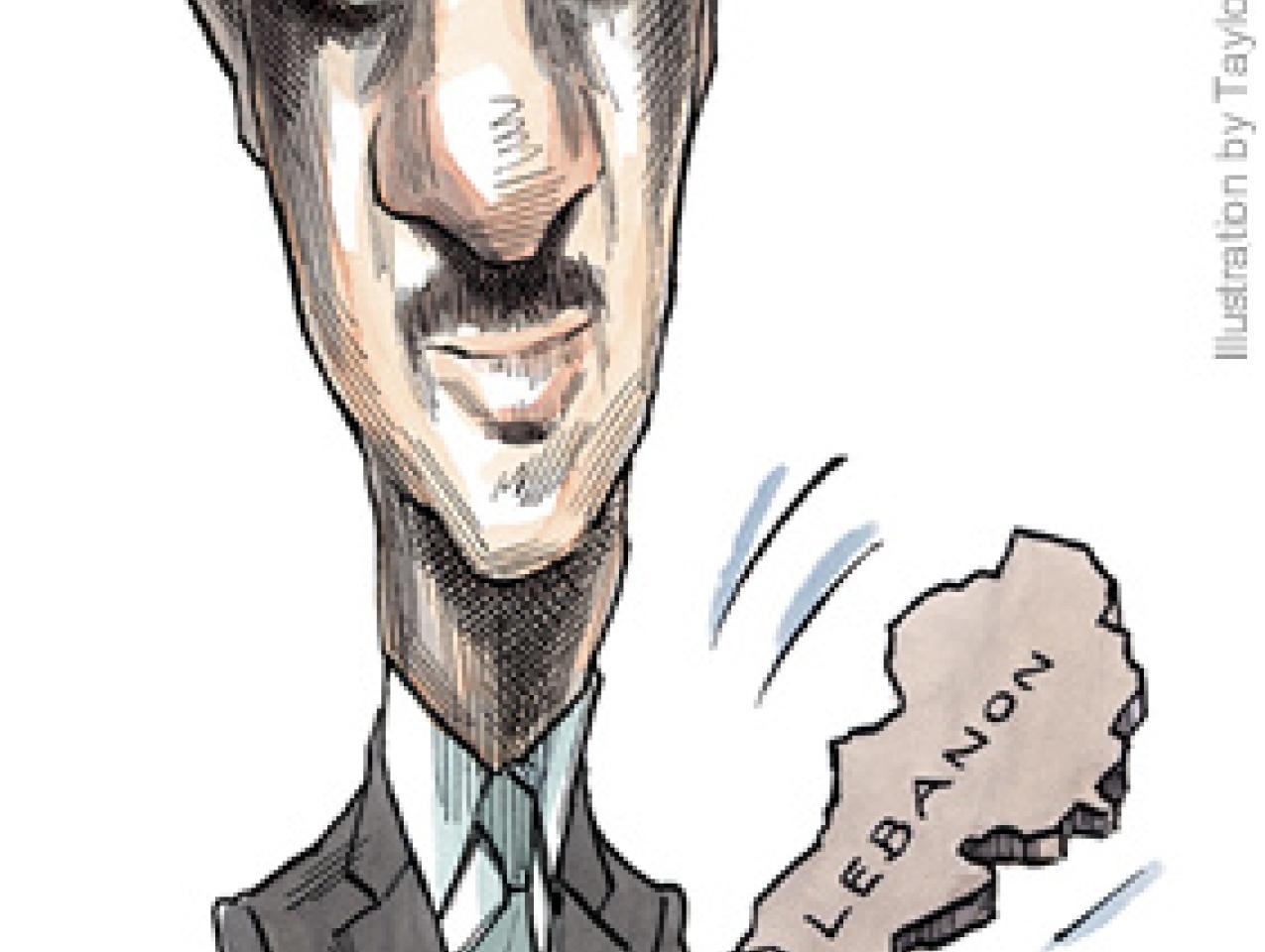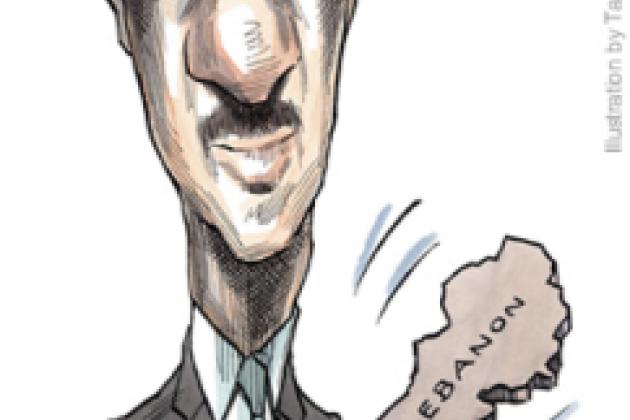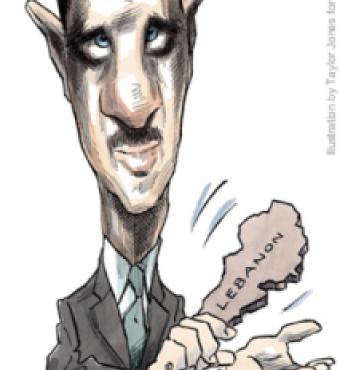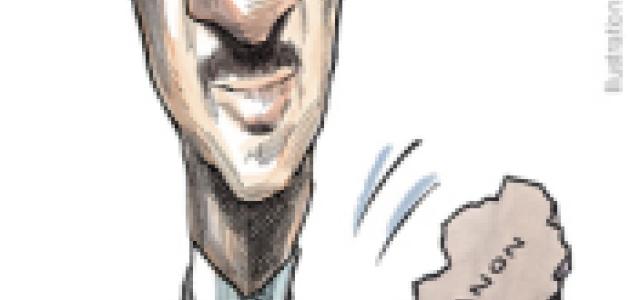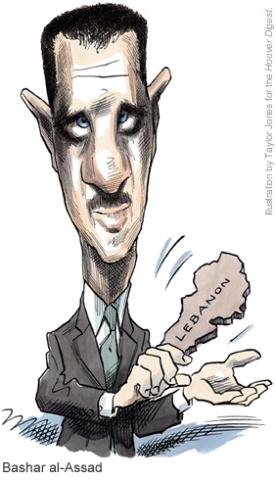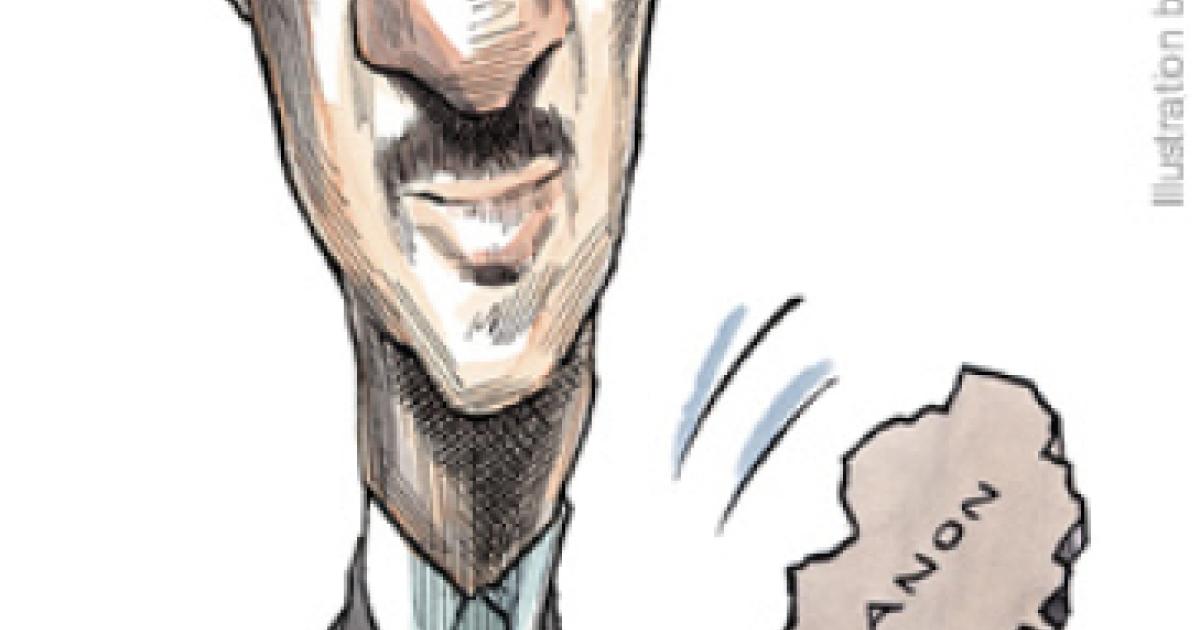- International Affairs
- US Foreign Policy
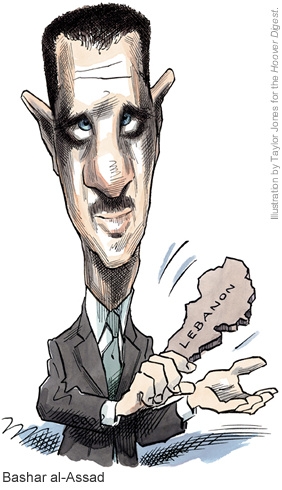
Last year in these pages I wrote about the idea of democratic realism, the foreign policy that is associated with neoconservatives and the president’s promotion of democracy globally, particularly in the Middle East. It went to the popular test last November and passed.
The main critics of neoconservative foreign policy could be termed isolationists, liberal internationalists, and realists. Isolationists are paleoconservatives who are, at present, insignificant. Liberal internationalism is represented by the Democratic Party. John Kerry presented the classic liberal internationalist critique during the campaign: We had not engaged the allies, we must rely more on international institutions, and we should adhere more vigorously to international law. But his argument fell largely on deaf ears and contributed heavily to his defeat. Americans are critical of and worried about the administration’s Iraq policy—but they certainly do not believe that success hinges on appeasing the French or expecting the Germans to help us.
So that leaves the main critique of the policy to the realists. And, late in the campaign, Kerry tried a little bit of realism, but it was late, and the shoe didn’t fit. The realist critique is that exporting democracy cannot succeed because it implies some universal vision of human nature, a universal aspiration to freedom, that is a Western or even an American conceit. This is seen as utopian, arrogant, and destabilizing because it suggests that our policy is aimed at changing the nature of regimes, rather than the traditional realist foreign policy of dealing with existing regimes with little regard for their internal affairs.
The Bush doctrine, which we have pursued since 9/11, is based on what states do internally. We care about their external actions, but we also care about who makes the decisions. The theory is that non-dictatorial regimes—which represent democratic aspirations and adhere to the democratic principles of the rule of law, protection of minorities, and human rights—are more likely to have normal relations with us.
We have now tested the theory. And just recently we have had the Lebanese revolution, the Egyptian announcement about electoral changes, the Iraqi elections, the Afghan elections. Kuwait has just extended suffrage to women, and Syria has announced, however disingenuously, that they are moving toward legalizing political parties, purging the ruling Baath Party, sponsoring free municipal elections in 2007, and formally endorsing a market economy (Washington Post, May 17). What we have seen in the last six months has been simply astonishing—well, astonishing to the critics. I am pleasantly but not entirely surprised.
The fundamental proposition that the president enunciated—that people everywhere would rather live in a decent, open society than a repressed, closed one—is simple and obvious. But we have had much opposition to it from liberals and conservative realists as well. If you read the National Interest, you know that other conservatives have had some quarrel with the propositions that I have put forward on the grounds that they are unrealistic. My chief critic, Francis Fukuyama, wrote last summer that the Iraq experiment was doomed to fail and that this was predictable in advance. Of course he waited until after the war to predict it in advance. But even his retroactive prediction was wrong.
Baghdad Spring
We had a difficult period in April 2004, with the uprisings of the Sunnis in Fallujah and the extremist Mahdi army in Najaf. That is when everybody despaired and the liberal supporters of the war began to jump ship. Not a lot of people believed then that the experiment would succeed. Thankfully, one of them was the president of the United States; ultimately a majority of the American public—despite their skepticism—decided to trust the policy to a president who believed in something over a man who believed in very little.
So we had this difficult period when it looked as if we had stumbled into a strange land, provoked Iraqi nationalism, and turned the entire population against us. That analysis was completely wrong. The rising in Najaf of Muqtada al-Sadr represented a fringe element of Shiites whose leader is despised by most Shiites, particularly the moderate clergy represented by Grand Ayatollah Ali Sistani, who saw him as an impudent upstart. As one Islamic scholar explained to me, al-Sadr was the equivalent of a graduate student who had taken up arms and was declaring himself the supreme religious authority.
Because of a lack of popular support, that insurgency withered and died, and what we saw in Iraq at the end of January was remarkable. The overwhelming majority of Iraqis defied the threats to their own lives and participated in the first open election in Iraq’s history, electing a constitutional assembly that is now engaged, remarkably, in real politics. Classic Madi-sonian factions are appearing: the moderate Shiites, the Kurds, a few Sunnis; the religious and the secular. The tribal and modernizing elements are clashing, trying to work out a compromise as one would expect in a mature democratic society. This is remarkable in a place where civil society and any history of decent politics had been eradicated by 30 years of the most sadistic and brutal dictatorship.
So Iraq, despite everything, is encouraging because the election has empowered a majority of Iraqis to inherit the government. And they have a vested interest in defeating the insurgency, which will make them our ally in this fight. It will not be an exclusively American operation.
The example of Iraq has had a stunning effect in the region. The other Arab countries are not hermetically sealed. They cannot keep out satellite television. And even Al Jazeera could not deny what the pictures showed: Iraqis under American occupation exercising a right that is not allowed in any other Arab state. And that has had a revolutionary effect.
We see it now: in the streets of Lebanon, where Rafiq Hariri’s assassination sparked an anti-Syrian, pro-democratic reaction; even in the announcement out of Cairo that the dictator is proposing, at least in principle, the first open election in Egypt’s history. If that happens, it will have an amazing effect on the rest of the region because of Egypt’s historical role as the cultural and intellectual capital of the Arab world.
People are now talking about the Arab Spring, an echo of the Prague Spring of 1968. Walid Jumblatt, a Druze leader in Lebanon, recently said that the Berlin Wall is falling and credited America’s liberation of Iraq as the start of a democratic process there.
Now if you have been following the editorials in the New York Times recently, it is as if everybody had agreed all along: There was never any doubt that the will to freedom was lying in the bosom of the Arab people, it just needed some expression. What liberals love to do is to praise the courage of the Iraqis and the Lebanese. Well I salute that courage, but I would propose that they had the same amount of courage two years ago. But they did not have the opportunity; that was brought by the American army. It was the Bush doctrine, Bush action, Bush determination, and the fact that Bush was willing to risk his presidency on a war that he believed absolutely necessary.
Now there is this sort of sentimental notion that “people power” is sweeping the globe. We saw it in Ukraine, Georgia, and now elsewhere. This is nice and good, but people power has its limits. When it encounters a dictatorship at the point of its maximum cruelty and confidence, it fails. We had the revolutions of 1848. They were ultimately crushed. We had the revolution in Hungary in 1956. Crushed. Prague Spring. Crushed. Tiananmen. Crushed. Anglo-Saxons have this illusion, because of our history with Gandhi and Martin Luther King Jr., that freedom is irresistible. It is only irresistible in a decent society, like America’s or the British Empire’s. Ho Chi Minh, speaking of Gandhi’s demonstrations in India, said in 1921 that if Gandhi had lived in French colonies he would long ago have entered heaven; the French would not have been as tolerant and decent in dealing with dissent as the British were.
So we have this skewed vision, because of our own benign history, of the power of ideas and people. They are absolutely essential, a necessary condition for liberation, but not a sufficient condition. You must also have power. Right now that is American power. The American military is the shield that protects the democratic process in Iraq. And its presence in that region has given courage to the people of Lebanon and liberal elements in Egypt and elsewhere.
Although we are in the middle of the process, perhaps even at the beginning, and this could all be crushed ultimately, history has rendered a verdict: the idea that this was possible is true. That has been shown irrefutably in the last year. It does not mean that success is ensured. Success will require determination, understanding exactly where we are today, and an unflinching and unwavering commitment.
Last year, when asked what we could do to ensure the success of this policy, my answer was that we could do all the public diplomacy, foreign aid, speeches, visits, and tours we wanted but still fail. The only thing that mattered was success in Iraq. Iraq was the experiment and test. We had to show that what we were doing was possible. And we have.
We have proven that there is a universal will to freedom and to decent governance and that if you can remove the impediments and the fear, it will express itself. Everywhere.
We showed something else by our success in Iraq—conducting elections there, opening the political process, and our willingness to yield to a legitimate, elected, representative Iraqi government—our sincerity. We said we went into Iraq to liberate Iraqis, with no motives of oil or hegemony or revenge. The president said that this was a way to begin the liberation, to change and transform the dictatorial and intolerant culture of the Middle East. That sincerity showed, even on Al Jazeera. And it swept the region, which is why people who have said that the Iraqi invasion increased anti-Americanism are extremely shortsighted. Perhaps it did in the short run because it was an extremely arrogant (that is, decisive and unilateral) action. But, by showing that we had a genuinely democratic intention, and then staying and delivering on that intention, we have inspired Arabs all around the region. When Jumblatt and Amin Gemayel, the former Lebanese president whose brother Bashir was assassinated by the Syrians 20 years ago, speak of what is happening in Lebanon today, they attribute it to America’s actions and the breaking of the ice that we initiated. Change is now happening in Egypt, which has experienced a wave of anti-government protest; that can only have happened after what we did in Iraq.
The Road to Peace Runs through Damascus
So where does that leave us? Today we have two objectives. One, as before, is success in Iraq. We must stay with it. But there is another element now in Lebanon, where we have a real opportunity. Lebanon is the place where history is happening now.
Lebanon is vital for two reasons. First, revolutions do not stand still. They either advance or retreat. We are in the middle of a revolutionary era in the Arab world unseen since the post–World War II era, when there was great anticolonial ferment. But that ferment had frozen by the early 1970s. Since then it has had the most rigid, unchanging, intolerant regimes in the world. Egypt has had only three leaders since 1952. Syria has had two in the last 30 years. And Iraq had 30 years of Saddam. This is unusual stability, which realists love but that is inimical to our interests and the interests of the Arabs. So this revolution is happening now.
But it must continue. We have had the elections in Afghanistan, in Iraq, and among the Palestinians. We have had demonstrations in Egypt. People have a sense that the old era is ending. The era of dictatorship and the false dream of Arab nationalism are fading. The people are throwing off the fear. They are demonstrating in Lebanon and elsewhere in the face of orders not to demonstrate. The effect is cumulative and contagious, but it must not stop. If it does, it could be frozen and contained and end up like Europe in 1848, having to wait another generation until new political ideas are in the air.
Also, there is an extremely important geopolitical reality here. Lebanon is the road to Syria, and Syria is the key bad actor in the region. (I am leaving out Iran because it is not Arab and is on the periphery.) If you look at the map, Syria is surrounded by five countries, all of which are democratic, democratizing, or, in the case of Jordan, a tolerant monarchy. Syria has tried to destabilize all of them. A recent bombing in Lebanon was undoubtedly the work of Syria; a recent suicide bombing in Tel Aviv was attributed by both Israelis and Palestinians to Syria; and the continuing attacks in Iraq are by insurgents whom everybody knows Syria supports. Syria is at the center of a democratizing region, and it wants it all to stop. Syria’s is a very weak government. It is a dictatorship based on the Alawites, which are a tenth of the population, highly despised, highly repressive, and now in crisis. And Lebanon is the crown jewel of this dictatorship.
Lebanon is important to the regime for two reasons. First, economic: Syria’s economy, based on the Soviet model, does not work. It is completely impoverished. Its sources of income are corruption and theft from Lebanon, which keep the Syrian economy afloat and the Syrian elite rich and comfortable. Take away Lebanon, and Syria’s economy collapses.
And there is the psychological element. Syria claims Lebanon as its own. Syria never even sent an ambassador to Lebanon because it does not consider Lebanon independent. If Syria loses control of Lebanon, it will destroy the prestige of the Syrian government and embolden its opponents: a Wizard-of-Oz effect, if you will (when you look behind the curtain, nothing is there). Bashar al-Assad could rapidly lose what the Chinese called the mandate of heaven if he loses Lebanon.We have a real opportunity here to change Syria and ultimately democratize the entire Mesopotamian region, an astonishing accomplishment.
The Syrians are clearly scared. Assad’s turning over the half-brother of Saddam and some 30 others recently indicates that they are trying to appease us sufficiently so that we back off. But we must not. There is an opportunity here, without any military involvement, to insist that this revolution in Lebanon continue to the expulsion of the Syrians. If that happens, the whole complexion of the Middle East changes. Iran is isolated on the periphery. Hezbollah, Hamas, and Islamic Jihad lose a sponsor, increasing the chances of peace between Israel and the Palestinians.
Those who argue that the road to peace in the region, as well as success in Iraq and elsewhere, is through Jerusalem have it completely wrong. You take away the sources of instability by supporting Lebanon against Damascus, thereby improving the chance of success between Israel and the Palestinians. I don’t want to be too utopian about all this—it can all reverse and collapse—but what we have here is the American shield in place, led by a president determined to keep it there and to advance the vision he talked about: bringing democracy and liberty to the region. Democracy is on the march, and if we continue with the boldness and courage that we have shown during the past few years, we could see that revolution through. And if revolution occurs, it would be the first great step toward undoing the culture of hatred, intolerance, anti-modernism, anti-Americanism, and anti-Westernism that exploded on 9/11. That is the most rational response to 9/11 and to the radical Arab/Islamist terrorist threat itself.
Hunting terrorists from one cave to another in Afghanistan is necessary but not sufficient. The only approach to solving the problem of safety in a world of Islamic and Arab radicalism is to change the culture of the region. A year ago people were saying that was a utopian dream. History is beginning to show that it is not.








